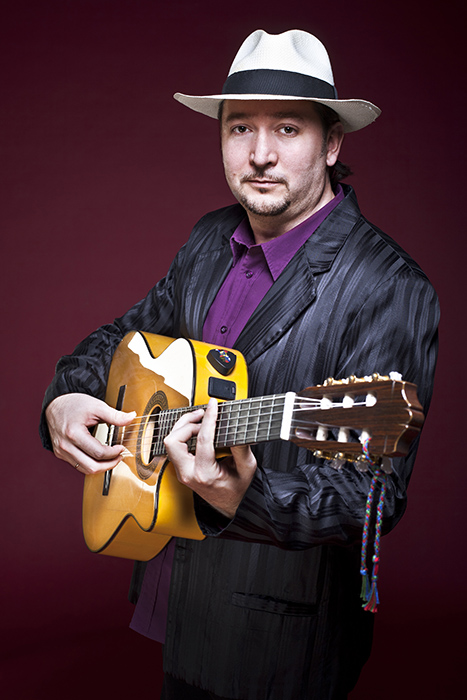Hungarian Roma Music at the 2012 Folklife Festival

Two ensembles will combine their musical talents for an evening concert at the 2012 Smithsonian Folklife Festival from 6 to 7:30 p.m. on Sunday, July 1.
The Kálmán Balogh Gipsy Cimbalom Band and the Karavan Familia perform Roma music (also known as Gypsy music), which traces its origins to India during the eleventh century. As the Roma people moved westward, the tapestry of their music evolved and developed with the sounds of Bulgaria, Hungary, Spain, and other parts of Europe.
The combined group performing at the Folklife Festival consists of five musicians, vocalists, and dancers from Hungary. Kálmán Balogh plays the cimbalom (a type of stringed instrument), and is joined by Csaba Novák on double bass and Róbert Lakatos on violin. Representing the Karavan Familia are Ilona Farkas doing vocals and dance, and István Nagy with vocals, guitar, tamboura, and blues harmonica.
The July 1 concert is a preview of many more Hungarian cultural traditions that will appear on the National Mall next summer, when Hungary will be one of the featured programs at the 2013 Smithsonian Folklife Festival.
Related Event: The Kálmán Balogh Gipsy Cimbalom Band and the Karavan Familia will also perform from 2:30 to 3:30 p.m. on Saturday, June 30, at the Fenton Street Market on Veterans Plaza in Silver Spring, Maryland.
Johanna Medlin is an intern with the Smithsonian Center for Folklife and Cultural Heritage, helping to inventory the Center's collection of material culture. She holds bachelor's and master's degrees in anthropology.

